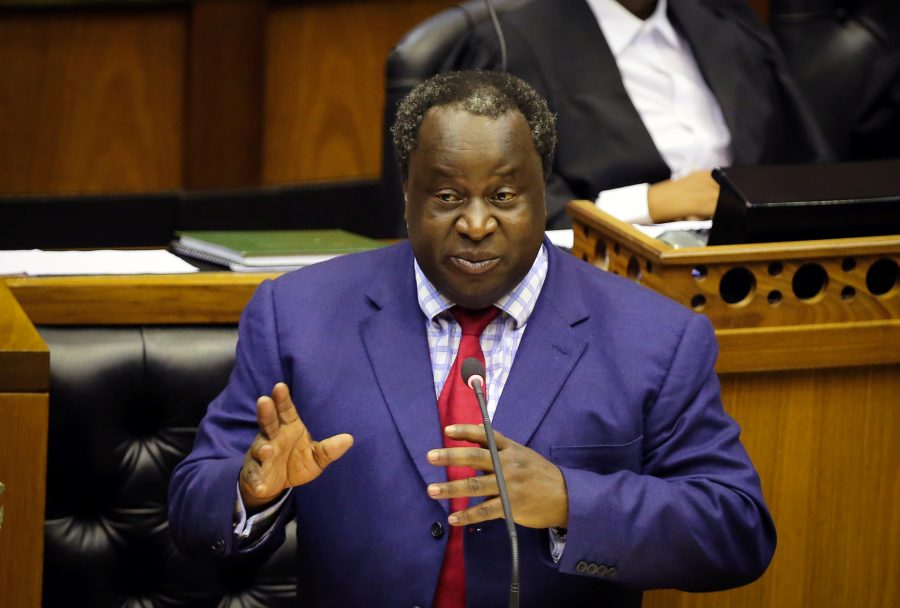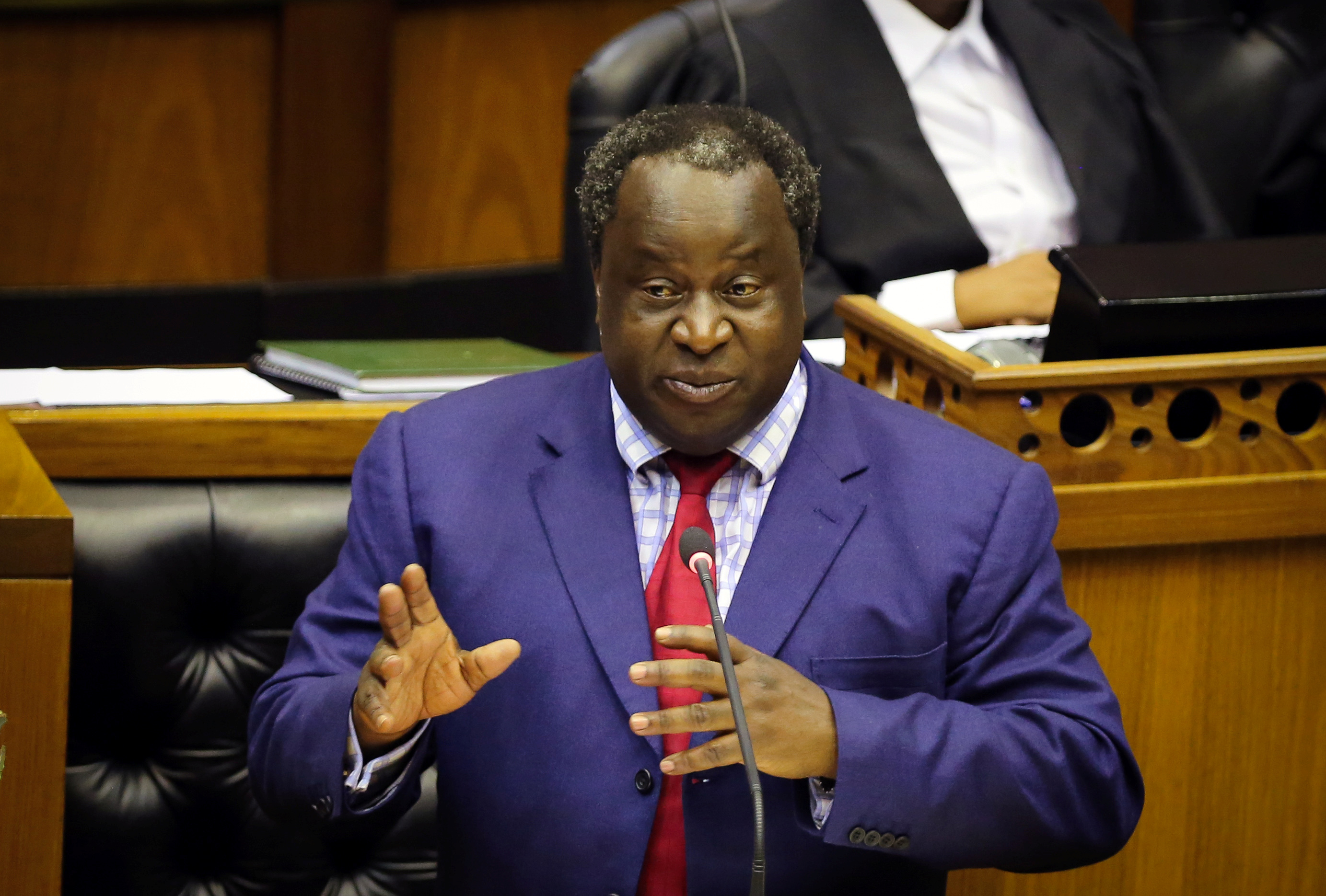
South Africa Pledges R69-Billion Eskom Bailout as Budget Creaks
CAPE TOWN – South Africa will bail out state utility Eskom with R69 billion ($4.9 billion) over three years, the centrepiece of a budget on Wednesday that exposed the limited room President Cyril Ramaphosa has to fix the economy ahead of an election in May. Ramaphosa, who is fighting rifts within his own party ahead […]

CAPE TOWN – South Africa will bail out state utility Eskom with R69 billion ($4.9 billion) over three years, the centrepiece of a budget on Wednesday that exposed the limited room President Cyril Ramaphosa has to fix the economy ahead of an election in May.

Ramaphosa, who is fighting rifts within his own party ahead of the parliamentary election, has made reforming Eskom one of his top priorities as its 420 billion rand debt pile poses a direct threat to Africa’s most developed economy.
Analysts said the financial support would give the ailing power firm several years to implement a restructuring plan which will see it split into separate entities for generation, transmission and distribution.
But it still leaves Eskom facing an uncertain future with unsustainable debts, crippling costs and stagnant sales.
“The money for Eskom is insufficient given the length of time over which the Eskom reorganisation will occur and the practical and political pitfalls that are ahead,” said Peter Attard Montalto, head of capital markets research at Intellidex.
Those pitfalls include major job cuts, an option that was unlikely to be implemented before the election amid fierce opposition from leftist sections of the ruling African National Congress (ANC) and powerful trade unions.
The ANC is expected to win the election, but only a handsome victory would give Ramaphosa the mandate to push through painful reforms that are opposed by those within the ruling party still loyal to his scandal-plagued predecessor Jacob Zuma.
In his maiden budget speech, Finance Minister Tito Mboweni told parliament that the emergency funds for Eskom would be financed through reprioritised spending and increased borrowing, but he rejected Eskom’s request that the state take on 100 billion rand of the utility’s debt.
“Pouring money directly into Eskom in its current form is like pouring water into a sieve,” Mboweni said.
“I want to make it clear: the national government is not taking on Eskom’s debt.”
The rand and government bonds initially dropped as the budget forecast wider deficits, rising debt and slower economic growth. But they later recovered as traders welcomed the fact that Mboweni made the additional Eskom funds conditional on progress with restructuring.
RATING RISK
Increasing the country’s debt to fund Eskom in a low growth environment will be a concern for ratings agencies. Moody’s, the last of the top three agencies to have South Africa at investment grade, is due to announce its latest ratings decision at the end of next month.
“The really difficult decisions which need to be taken are not being made. There is a risk that ratings agencies will say time is up,” said Jana van Deventer, an economist at ETM Analytics.
Some business leaders wanted more detail on how Eskom’s debt mountain would be reduced over the longer term.
“We were hoping that the government was going to look at debt and take some of the burden off the utility, but unfortunately that didn’t materialise,” said Tanya Cohen, chief executive of Business Unity South Africa.
Eskom last week subjected South Africa to the worst power cuts in several years due to plant-related problems, diesel shortages and planned maintenance.
The outages exposed the risks to the economy from Eskom’s virtual monopoly and the failure of successive governments to take on labour unions and factions in the ANC who consider any form of privatisation as a red line.
The finance ministry said on Wednesday that the first step in splitting Eskom would be to transfer a portion of the utility’s assets to a new transmission subsidiary. Strategic equity partners will be invited to provide capital and strengthen oversight.
“We have had very very difficult conversations with the ratings agencies,” Mboweni told journalists. “If we are doing practical things to fix Eskom the electricity sector, in my view, that should be viewed as positive.”
Eskom received a 60 billion rand bailout in 2008 via a loan which was later converted into equity. The government later sold state assets to give it another 23 billion rand.
The budget predicted gross domestic product growth of 1.5 percent in 2019, down from a 1.7 percent forecast in October. The budget deficit is seen narrowing to 4.0 percent in the 2021/22 fiscal year from 4.5 percent in 2019/20.
No major tax hikes were announced on Wednesday, but the finance ministry raised the expenditure ceiling by 16 billion rand over the next three years to find money for Eskom.
($1 = 14.1498 rand)
(Reporting by Olivia Kumwenda-Mtambo, Wendell Roelf and Mfuneko Toyana; Additional reporting by Alexander Winning, Tiisetso Motsoeneng and Joe Brock in JOHANNESBURG and Karin Strohecker in LONDON; Editing by David Evans and Keith Weir)
